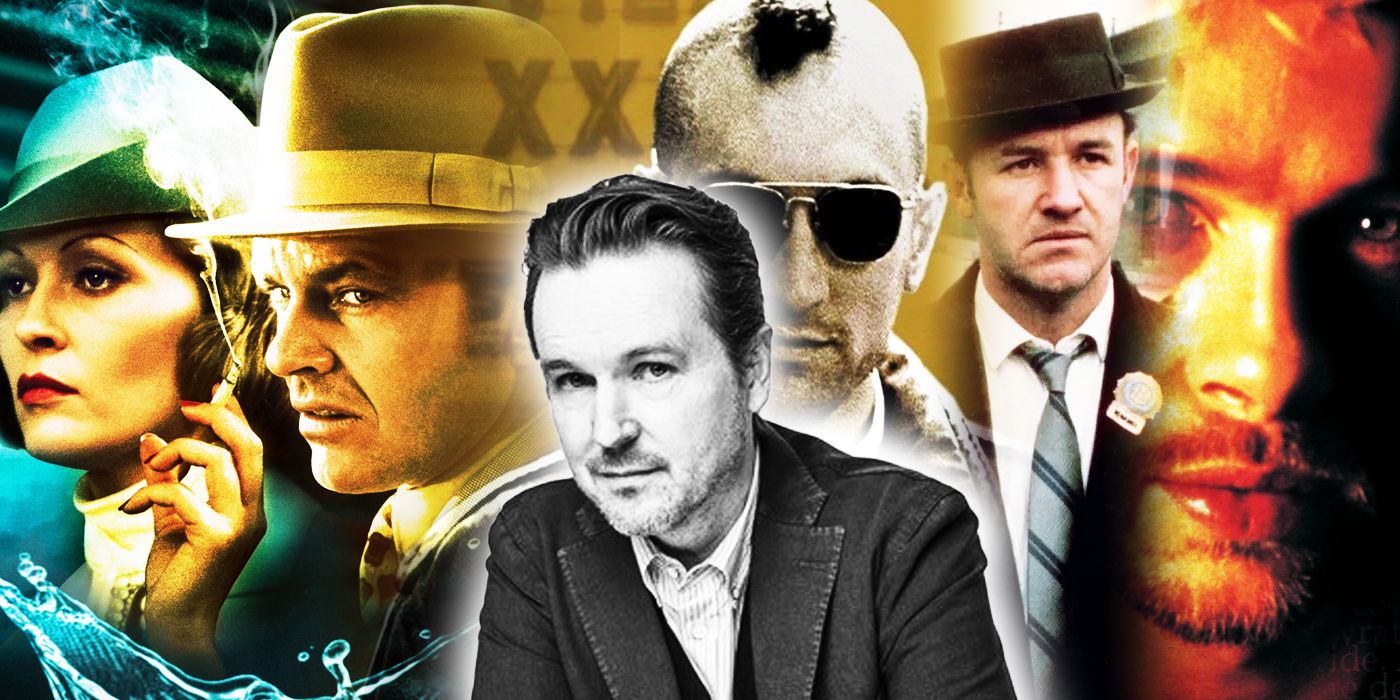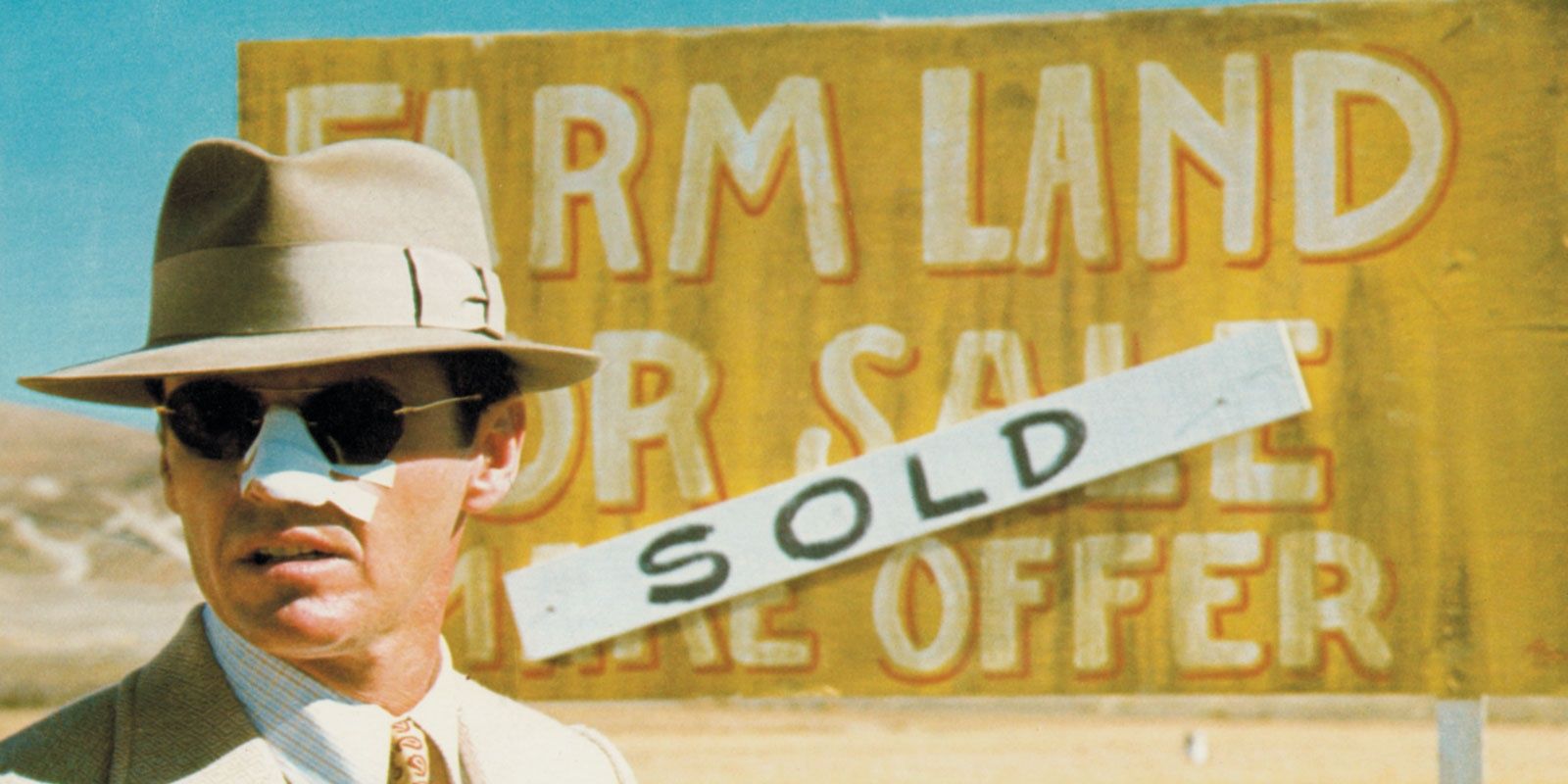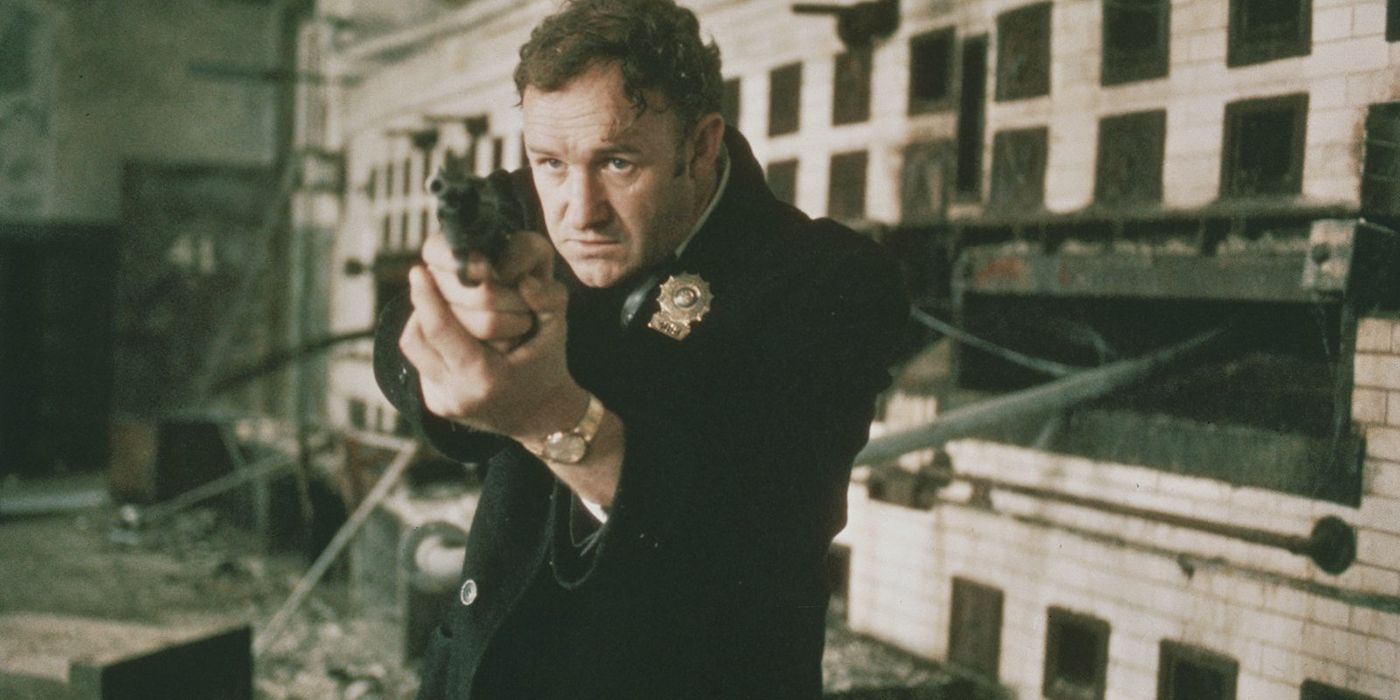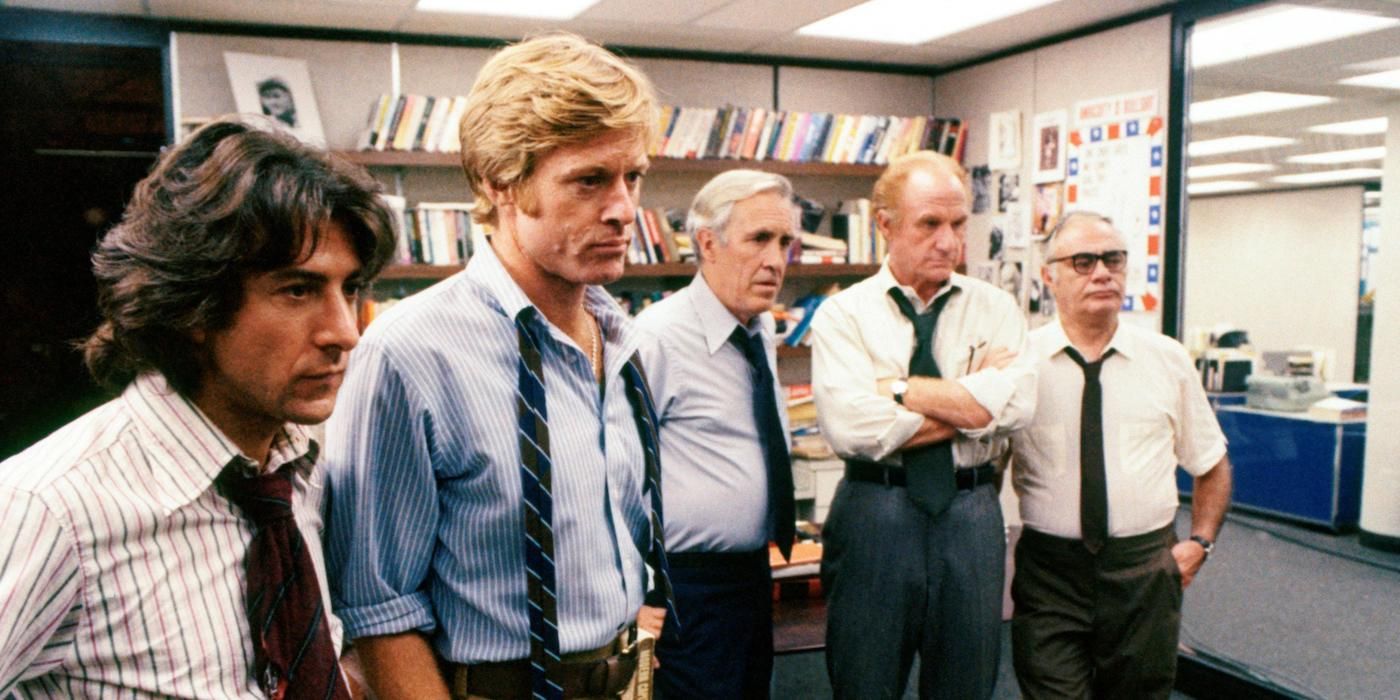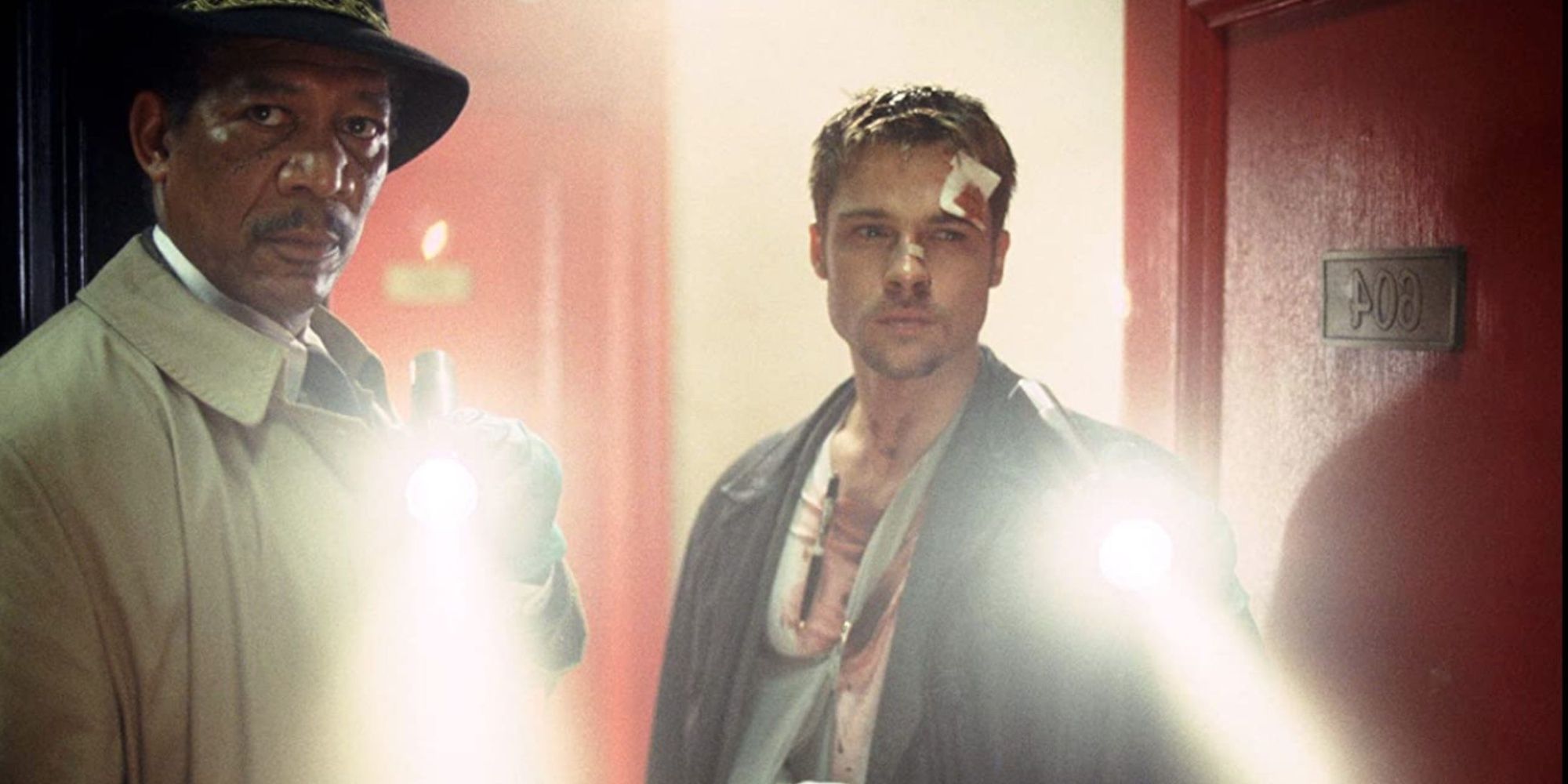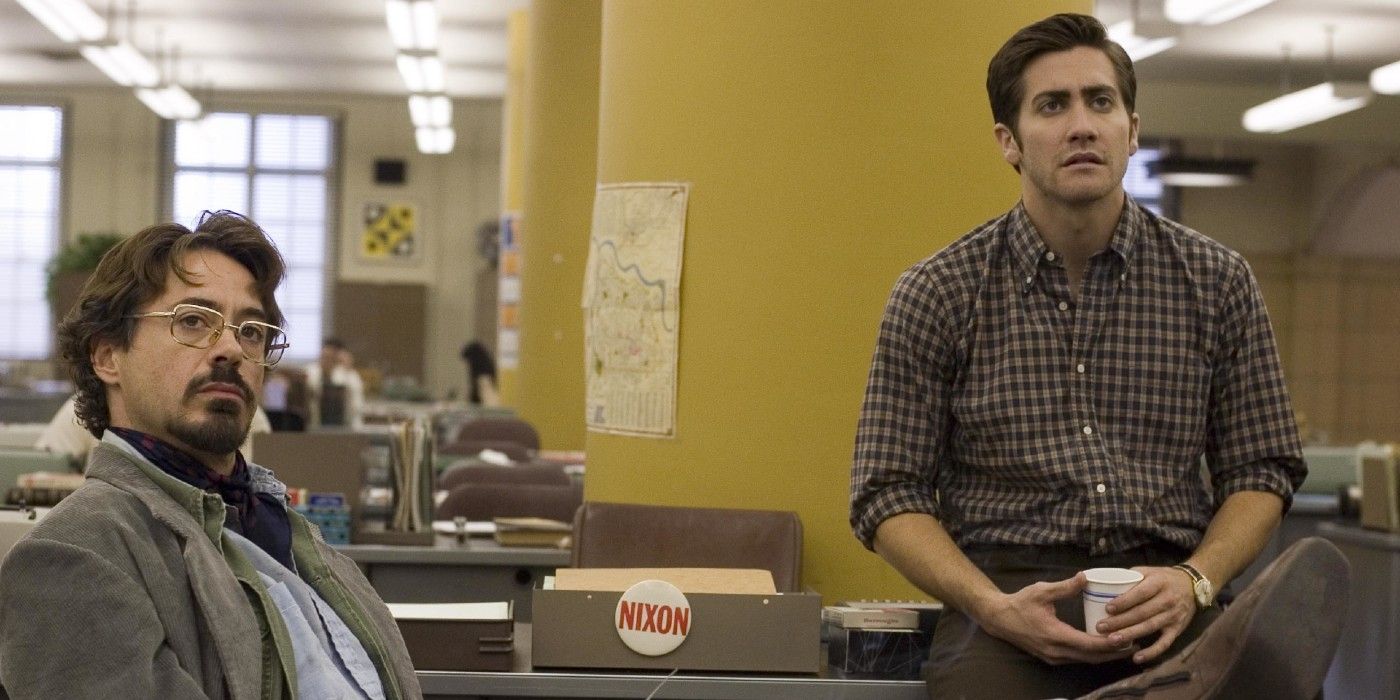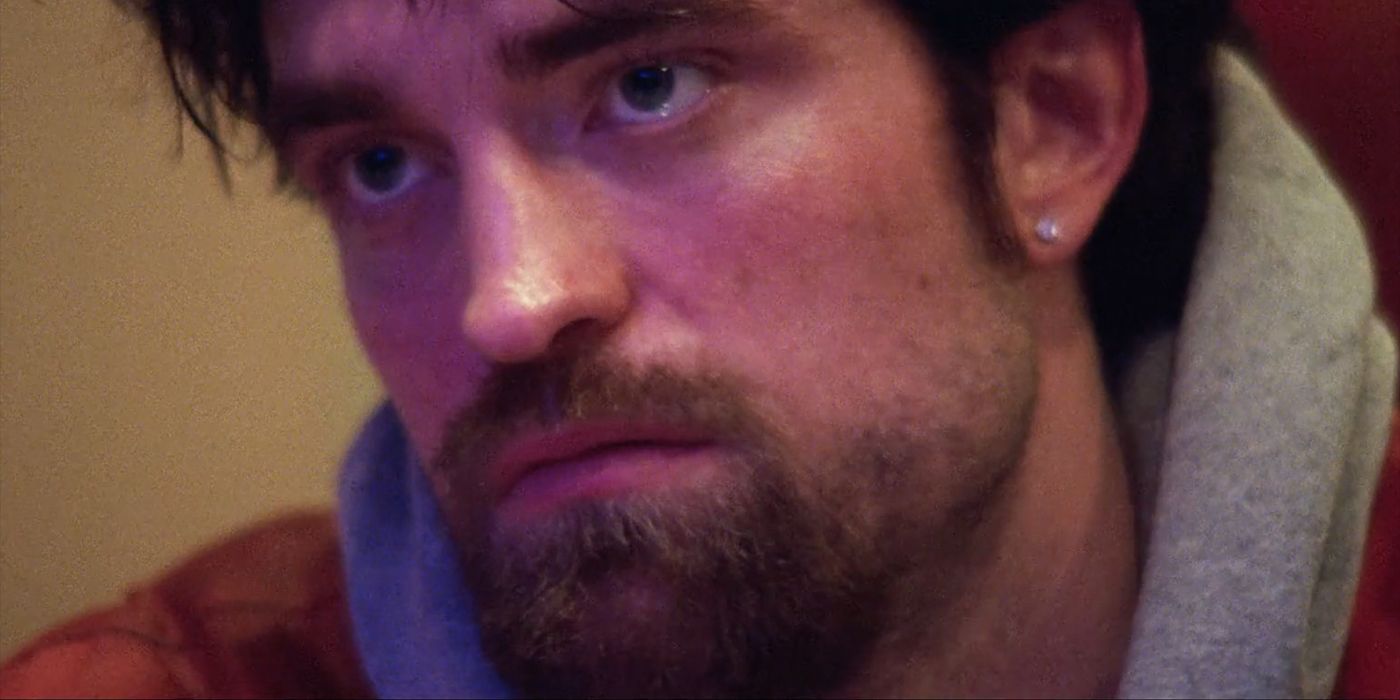Matt Reeves’ The Batman is finally upon us, after years and years of anticipation.
The good news is that critics, for the most part, have responded with overwhelming positivity to the Cloverfield director’s brawny, brooding take on the darkest days of the Caped Crusader. Ever since its moodier-than-usual trailer first premiered, The Batman has felt gloomier, stranger, and certainly more cinematic than your average superhero tentpole. Largely thanks to the magnificently evocative cinematography of Dune cinematographer Greig Fraser, The Batman actually looks like a movie (in other words, not merely an advertisement for its own existence) and the operatic, rain-slicked images of Reeves’ film are indeed rife with allusions to a bygone era of moviegoing.
So: before you go buy a ticket to see Robert Pattinson don the cape and cowl as Gotham City’s foremost billionaire-scion-turned-crime-fighter, here are seven classic films that Reeves took inspiration from for his latest, most ambitious outing to date.
Chinatown
Reeves and his collaborators have made no bones about the fact that The Batman is a straight-up noir. With that in mind, why not borrow from the best? Roman Polanski’s timeless detective story is an immaculate gumshoe masterpiece that’s also a parable about a man fighting a losing battle for his soul against powers that be that are more corrupt than anyone could imagine. Granted, Jack Nicholson’s Jake Gittes, however tormented, was ultimately a bit more of a smooth operator than Pattinson’s creeped-out, wayward rock-star take on Bruce Wayne. Alas, both Chinatown and The Batman are about cities built on pillars of vice and greed, and an idealistic, albeit brutal man who thinks he can topple it all and build something new out of the rubble.
Taxi Driver
For better or worse, Taxi Driver was a massive influence on Todd Phillips’ polarizing Joker. At this point, how much is even left to say about Taxi Driver? Martin Scorsese’s seething masterpiece is the granddaddy of grubby urban alienation movies, which means it only makes sense as a jumping-off point for a re-imagined, far grittier Batman story. Reeves goes so far as to quote Scorsese’s milestone outright in an interview, citing how there was a specific frame in Frank Miller and David Mazzucchelli’s Batman: Year One that made him think of the film. When you think about it, Wayne suffers from a lot of the same spiritual and mental maladies as Travis Bickle — he’s just much, much richer, and doesn’t typically have as much trouble in the talking-to-women department.
The French Connection
The French Connection depicts the New York City of the 1970s as a lawless, every-man-for-himself war zone: a blighted urban hellscape overrun by poverty, crime, crooked cops, and gangs terrorizing subway cars, all as the rich and powerful cavorted in protected penthouses somewhere far, far away. Gotham City has never really been based on one specific metropolis, but the sense of entropy and rot that we’re seeing in The Batman’s take on Gotham appears to indicate a considerable creative debt to William Friedkin’s grimy 1971 landmark. Granted, Jim Gordon’s always been a bit more of an upstanding lawman than Gene Hackman’s virulently racist Popeye Doyle, but hey, times change.
All The President’s Men
One of the more intriguing elements of The Batman is the inclusion of a conspiratorial subplot that, without giving too much away, indicts several elite members of Gotham City’s elusive upper crust. While All The President’s Men is obviously a work of historical fiction with its roots in real-life events, and even a grounded comic-book movie is still a comic-book movie at the end of the day, Reeves apparently nevertheless sought out Alan J. Pakula’s essential Watergate coverup thriller as a template for how to ground the methodical evil of Paul Dano’s Riddler in a real historical context. In SyFy, Reeves insisted that there “had to be a very deep conspiracy going on” in The Batman, with the most pertinent question being how far up the ladder it goes, and who’s got their hands dirty.
Se7en
One of the most disarming changes to the Gotham City mythology that we see in The Batman is the decision to turn The Riddler into an outright serial killer, one whose deviance ultimately brings a battle-worn city to its knees. With the Riddler’s murders revolving around a set of opaque clues, most of which are constructed with the intention of taunting and obstructing the authorities, it’s hard not to think of David Fincher’s grisly Se7en, one of the all-time serial killer films. The Riddler appears to be more of a homegrown terrorist than Se7en’s similarly disturbed John Doe, but the parallels – from the tip-offs left at crime scenes, to the unseemly means of dispatching with victims – all feel of a piece with Fincher’s memorably unsettling police procedural. If nothing else, the comparison makes sense for a superhero dubbed “the world’s greatest detective.”
Zodiac
Of COURSE, there were going to be two David Fincher films on this list! Fincher’s almost unreasonably engrossing Zodiac, about the Zodiac Killer’s bloody reign of terror in the San Francisco of the 60s and 70s, is a decade-best masterwork that combines the director’s fascination with murders and psychopaths with the details of routine minutiae as it relates to true crime. Like Zodiac, The Batman is a film one must be patient with. Both movies run well over two-and-a-half hours, and both need ample time to let the byzantine mysteries of their respective plots unfold. What’s more is that the Riddler’s character design seems openly modeled on the popular image that we now identify with the Zodiac Killer, right down to the hood and the character’s ominous question-mark insignia, which bears a curious relation to the murderer’s own self-chosen symbol.
Good Time
Robert Pattinson is effortlessly magnetic as unscrupulous Queens-bred scumbag Connie Nikas in the Safdie Brothers’ Good Time – so magnetic, in fact, that with that performance, he managed to convince Matt Reeves that he was the dude to play one of the most famous and beloved superheroes of all time. According to Empire, Reeves was sold on Pattinson’s go-for-broke turn in that nervy pulp thriller: “in that movie, you could really feel his vulnerability and desperation, but you could also feel his power.” In the same interview, Reeves compares Pattinson to Kurt Cobain, and cites Gus Van Sant’s Last Days (a minimalist tone poem about a Cobain-like junkie rock star wilting away in seclusion inside a crumbling mansion) as another source of inspiration.

